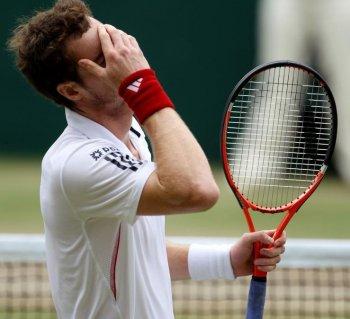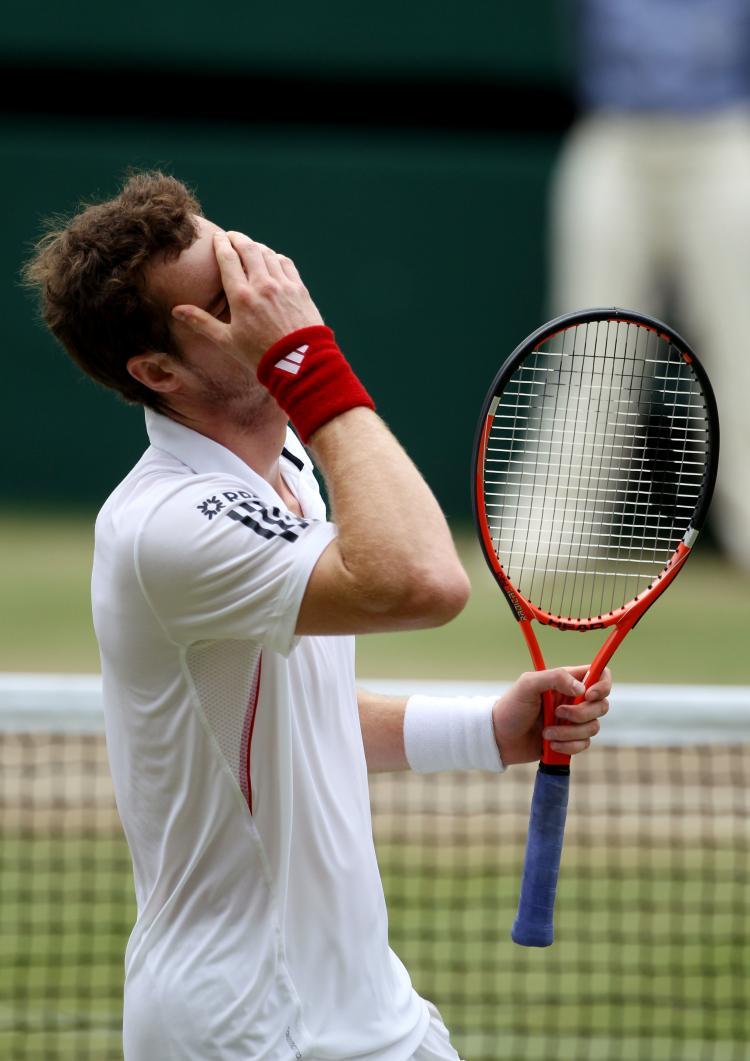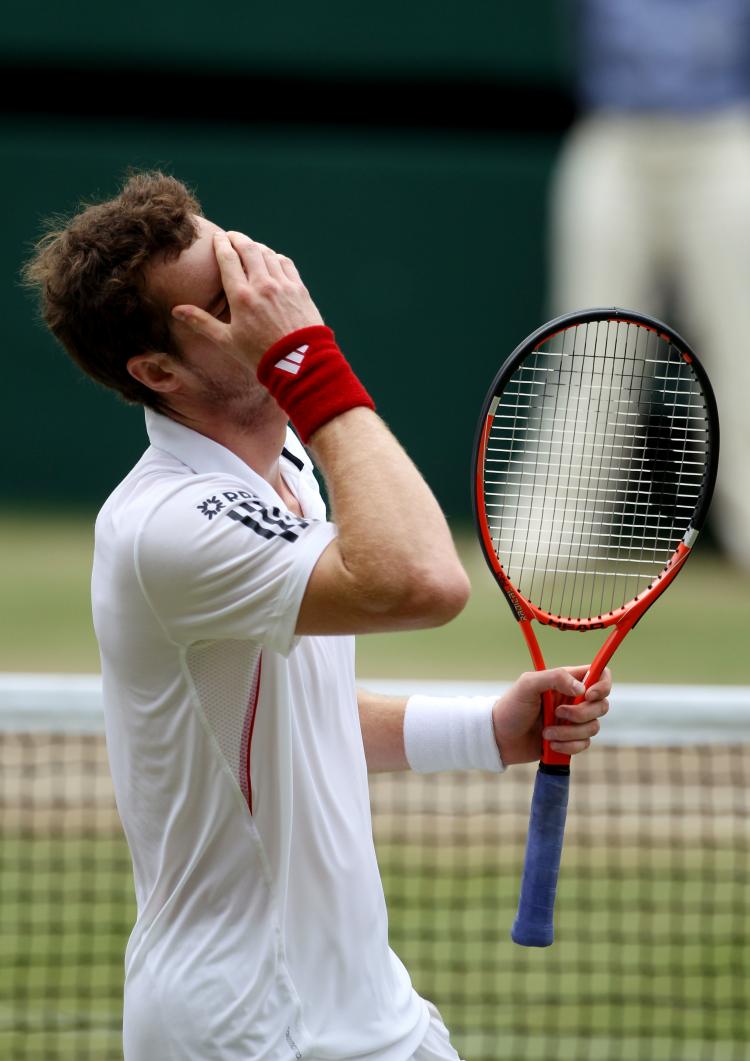LONDON—Britain’s ongoing neurosis about its lost standing in the world is always felt around July 4th. But not because of American Independence Day, or Canada Day a few days earlier. Not even because of a whole collection of national days celebrating a break from the Empire that cluster strangely around the beginning of the summer.
No. The spur for the early July collective naval gazing is the Wimbledon tennis tournament, capped by the inevitable triumph of an non-British champion.
Brits seldom think of a lost empire, or give a second thought to the real origins of American Independence Day—a phrase more likely to summon up images of Stars and Stripes, fireworks, and Will Smith seeing off an alien attack than of a nation shaking off the shackles of its colonial masters.
And yet Britain’s past prowess—and its ongoing uncomfortable slide from global power—gently perfuses much of British culture and attitude, including sport.
This summer was a double whammy. Together with the Wimbledon wipe out was the dismal performance in the World Cup football—a national disaster flanked as usual by soaring expectations and utter deflation.
Of course, every single nation gets obsessive about certain sports. But with Britain the expectations and buildups are that bit more unrealistic, and the sporting failures taken that much harder. Unrealistic sporting expectations are hard-wired into the nation because these national sports are precisely those the country once excelled at because they started here.
The soul-searching that follows the failures in football, rugby, cricket, and tennis is so painful because we feel that we are always losing at our own game. The British talk about ‘football coming home.’ Cricket is loved in many countries around the world, but its beating heart lies in the carefully tended pitches of this green and pleasant land. Rugby is played par excellence in schools in the southern hemisphere, but here young boys play it in the school where it was invented, in a town called Rugby. Imagine America losing on the world stage at American football. And baseball. Regularly.
Wimbledon, the All-England club, is arguably the greatest tennis tournament in the world, stretching back over 100 years. The origins of the modern game are said to be British. The whole tournament is synonymous with Britishness: strawberries and cream, iced pimms, green lawns, lashings of rain, and a stiff dress code. And yet, there hasn’t been a British (let alone English) winner since 1936. But every year when the tournament swings around there is excited talk of the potential British winners. And every year there is a great inquiry into the reason why we fail so dismally each year.
CONTINUED on Page 2...
[xtypo_dropcap]T[/xtypo_dropcap]he uncomfortable mis-match between the rich inheritance and current reality is still reflected on the world stage.
Just as Britain still scoops victories in cricket and rugby, it still punches well above its weight internationally. A member of the G-8, the G-6, and a nuclear power, with the power of veto at the United Nations, it still carries the stripes of its war days. But the power always seems to be a vast inheritance gradually worn away with each generation of spending.
The British economy was hit hard by the global recession, and may have to drop several more notches in its international standing.
As in sport, the nation still regards itself as a big player on the world stage, but its reach perhaps now extends its grasp.
The subtle sense of entitlement—and of a falling potency as a world power—is strangely offset by a lack of ostensible celebration of national identity. The Union Jack doesn’t adorn government buildings as the Stars and Stripes does in America.
There is no July 4th equivalent over here. As a nation, we don’t rally together under a flag and celebrate our national identity. We don’t have a national quotable set of guiding principles. The last time the country was invaded was nearly 1,000 years ago. The nation has gradually evolved over a millennium, and doesn’t ostensibly center around a particular historical moment, battle, flag, or phrase.
It would probably do the nation the power of good to have its own equivalent of July Fourth, to lift the national spirits in these dark times of economic struggle and footballing failure.
But the sad thing is that our very Britishness won’t allow us to do it. Britishness is a subtle pervasive set of qualities that is implicit and never explicit. Understatement, restraint, and a stiff upper lip don’t lend themselves to exuberant nationalism. Celebrate Britishness? Erm, sorry old chap, that wouldn’t be very... ahem... British... now would it?
No. The spur for the early July collective naval gazing is the Wimbledon tennis tournament, capped by the inevitable triumph of an non-British champion.
Brits seldom think of a lost empire, or give a second thought to the real origins of American Independence Day—a phrase more likely to summon up images of Stars and Stripes, fireworks, and Will Smith seeing off an alien attack than of a nation shaking off the shackles of its colonial masters.
And yet Britain’s past prowess—and its ongoing uncomfortable slide from global power—gently perfuses much of British culture and attitude, including sport.
This summer was a double whammy. Together with the Wimbledon wipe out was the dismal performance in the World Cup football—a national disaster flanked as usual by soaring expectations and utter deflation.
Of course, every single nation gets obsessive about certain sports. But with Britain the expectations and buildups are that bit more unrealistic, and the sporting failures taken that much harder. Unrealistic sporting expectations are hard-wired into the nation because these national sports are precisely those the country once excelled at because they started here.
The soul-searching that follows the failures in football, rugby, cricket, and tennis is so painful because we feel that we are always losing at our own game. The British talk about ‘football coming home.’ Cricket is loved in many countries around the world, but its beating heart lies in the carefully tended pitches of this green and pleasant land. Rugby is played par excellence in schools in the southern hemisphere, but here young boys play it in the school where it was invented, in a town called Rugby. Imagine America losing on the world stage at American football. And baseball. Regularly.
Wimbledon, the All-England club, is arguably the greatest tennis tournament in the world, stretching back over 100 years. The origins of the modern game are said to be British. The whole tournament is synonymous with Britishness: strawberries and cream, iced pimms, green lawns, lashings of rain, and a stiff dress code. And yet, there hasn’t been a British (let alone English) winner since 1936. But every year when the tournament swings around there is excited talk of the potential British winners. And every year there is a great inquiry into the reason why we fail so dismally each year.
CONTINUED on Page 2...
[xtypo_dropcap]T[/xtypo_dropcap]he uncomfortable mis-match between the rich inheritance and current reality is still reflected on the world stage.
Just as Britain still scoops victories in cricket and rugby, it still punches well above its weight internationally. A member of the G-8, the G-6, and a nuclear power, with the power of veto at the United Nations, it still carries the stripes of its war days. But the power always seems to be a vast inheritance gradually worn away with each generation of spending.
The British economy was hit hard by the global recession, and may have to drop several more notches in its international standing.
As in sport, the nation still regards itself as a big player on the world stage, but its reach perhaps now extends its grasp.
The subtle sense of entitlement—and of a falling potency as a world power—is strangely offset by a lack of ostensible celebration of national identity. The Union Jack doesn’t adorn government buildings as the Stars and Stripes does in America.
There is no July 4th equivalent over here. As a nation, we don’t rally together under a flag and celebrate our national identity. We don’t have a national quotable set of guiding principles. The last time the country was invaded was nearly 1,000 years ago. The nation has gradually evolved over a millennium, and doesn’t ostensibly center around a particular historical moment, battle, flag, or phrase.
It would probably do the nation the power of good to have its own equivalent of July Fourth, to lift the national spirits in these dark times of economic struggle and footballing failure.
But the sad thing is that our very Britishness won’t allow us to do it. Britishness is a subtle pervasive set of qualities that is implicit and never explicit. Understatement, restraint, and a stiff upper lip don’t lend themselves to exuberant nationalism. Celebrate Britishness? Erm, sorry old chap, that wouldn’t be very... ahem... British... now would it?







